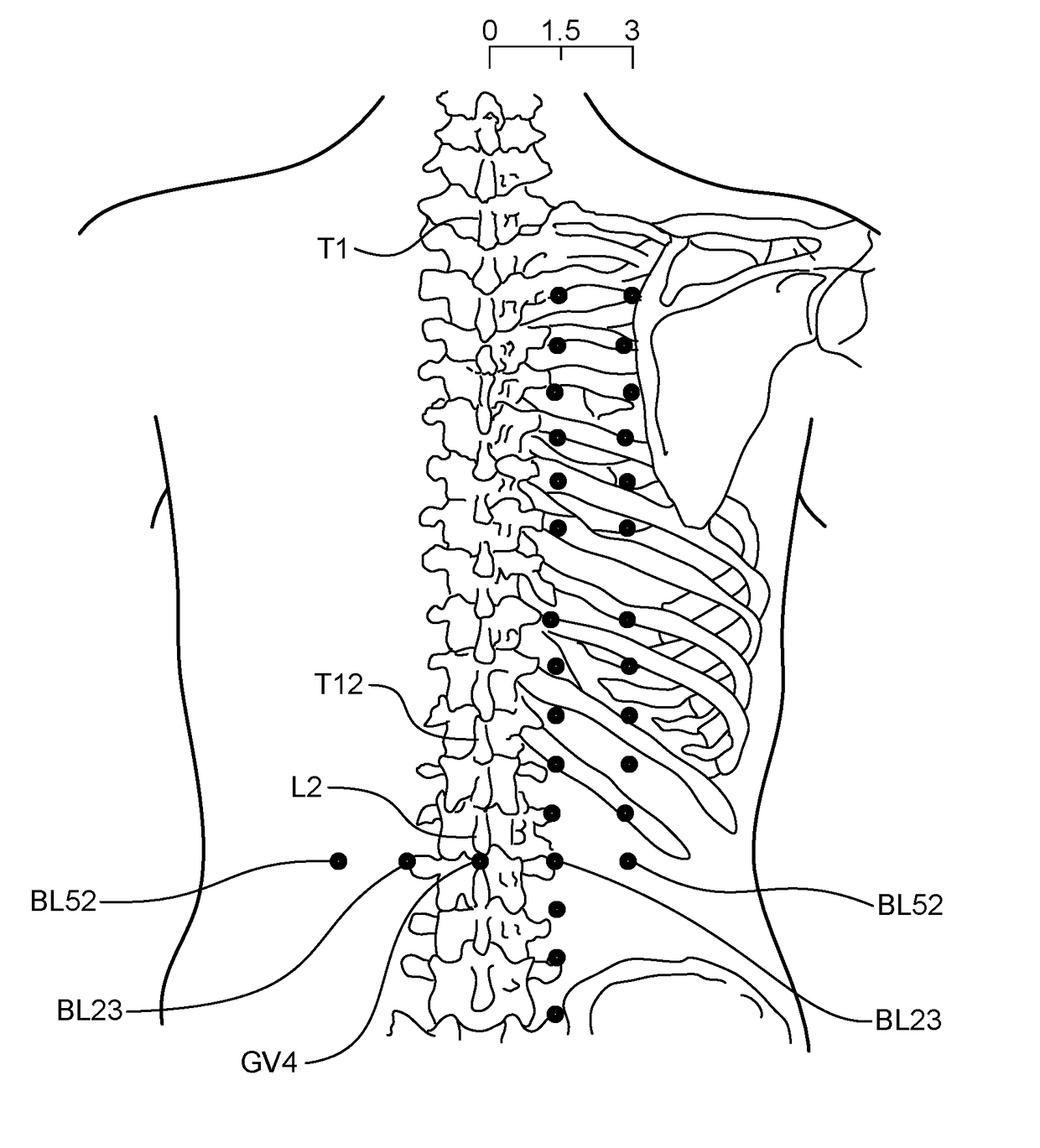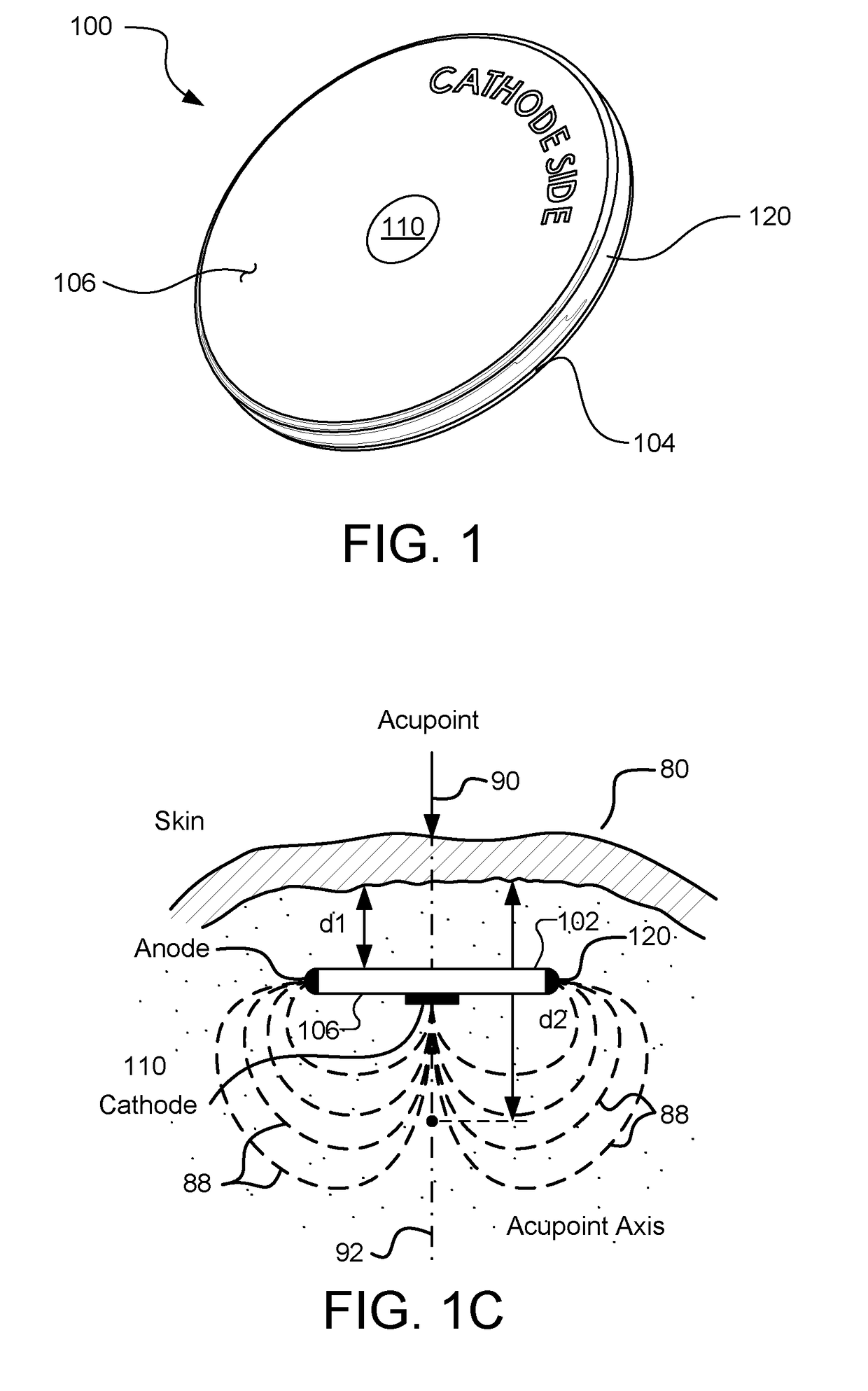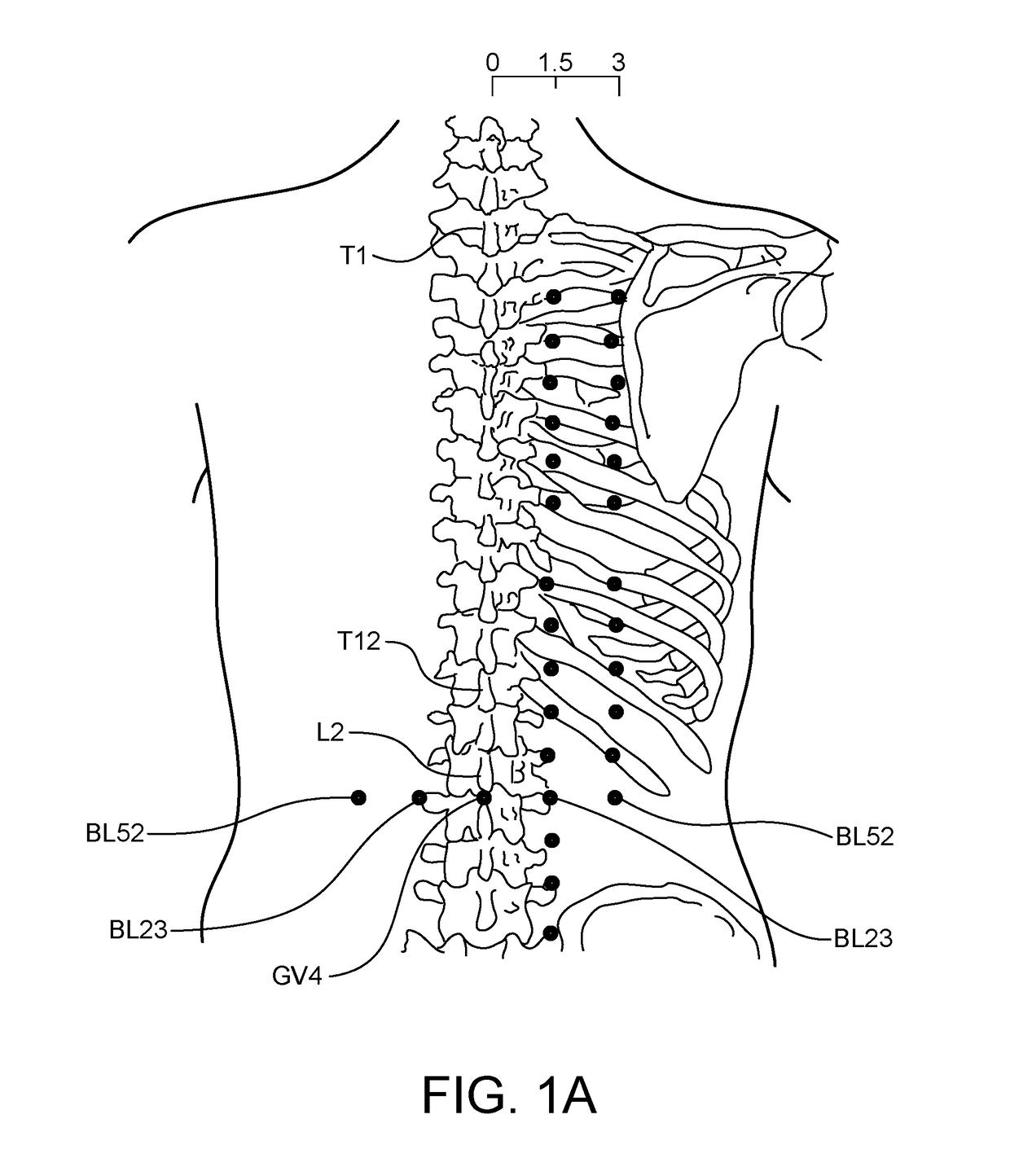Methods and Systems for Treating a Chronic Low Back Pain Condition Using an Implantable Electroacupuncture Device
a technology of electroacupuncture and chronic low back pain, which is applied in the field of chronic low back pain condition treatment using an implantable electroacupuncture device, can solve the problems of high medical expenses, low clinical efficacy, and limited commercial feasibility of microstimulator devices and applications, and achieve the effect of reducing cholesterol or triglyceride levels
- Summary
- Abstract
- Description
- Claims
- Application Information
AI Technical Summary
Benefits of technology
Problems solved by technology
Method used
Image
Examples
Embodiment Construction
[0067]Systems and methods for treating low back pain are described herein. In some examples, the systems and methods may provide an implantable electroacupuncture device (IEAD) that treats chronic low back pain through application of electroacupuncture (EA) stimulation pulses applied at a target tissue location. The target tissue location comprises tissue underlying, or in the vicinity of, at least one of acupoints GV4, BL22, BL23, BL24, BL25, and BL26, all of which are located in the lumbar region about 1.5 inches lateral to the posterior median line. The IEAD may include: (1) a small IEAD housing having a header formed thereon into which a unipolar lead having a distal electrode located at or near its distal tip (hereafter “distal electrode), may be detachably connected, and at least one other electrode formed as part of the IEAD housing (hereafter “case electrode”), (2) pulse generation circuitry located within the IEAD housing that delivers EA stimulation pulses to the patient's...
PUM
 Login to View More
Login to View More Abstract
Description
Claims
Application Information
 Login to View More
Login to View More - R&D
- Intellectual Property
- Life Sciences
- Materials
- Tech Scout
- Unparalleled Data Quality
- Higher Quality Content
- 60% Fewer Hallucinations
Browse by: Latest US Patents, China's latest patents, Technical Efficacy Thesaurus, Application Domain, Technology Topic, Popular Technical Reports.
© 2025 PatSnap. All rights reserved.Legal|Privacy policy|Modern Slavery Act Transparency Statement|Sitemap|About US| Contact US: help@patsnap.com



